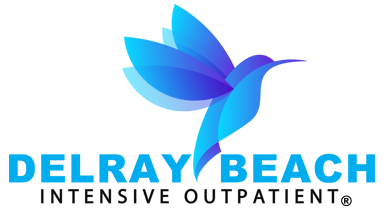If you’ve made the decision to seek addiction treatment, whether for yourself or for someone you love, it’s understandable that you might be a little overwhelmed. Treatment services for addiction exist on a pretty wide continuum, and the distinctions between, for example, residential treatment, partial hospitalization, and detox programs can be overwhelming to someone who isn’t familiar with the terminology. So, we’ve put together this handy dandy guide to the basics of these different levels so that you can get an idea of which one might be appropriate for you.
Level 1: Medical Detox
The highest level of care that may be necessary in your treatment for addiction is medical detox. Rather that being psychological “treatment” for addiction, this stage is intended for people who are physically dependent on a substance that withdrawing from will result in physically or psychologically dangerous withdrawal symptoms, such as alcohol, benzodiazepines, or opioids. Patients under this level of care typically are confined to a hospital setting, where they can be consistently medically monitored, and will typically only stay for five to seven days, until their most acute symptoms have passed.
Level 2: Residential Treatment
Patients who are receiving care in an inpatient or residential treatment program are those who require twenty-four supervision. They live on site at the hospital or facility and have very little free time, with their days instead filled up with therapy, medical care, and other structured activities.
Patients may go from a detox program to this level of treatment, or they may instead enter at this level of treatment if detox is not required. They may also “step up” to this level of treatment if they have been unable to maintain sobriety given a lower level of care.
Level 3: Partial Hospitalization Program
This level of care is appropriate for patients who are not medically or psychologically unstable enough to necessitate detox or residential treatment but who still have complex treatment needs and are at relatively high risk of relapse. Partial hospitalization programs usually require at least 20 hours of treatment per week, meaning that patients usually are not able to maintain outside jobs while they are undergoing treatment. However, they are able to live off-site, have a little free time, and begin to learn how to navigate the real world sober. Patients will report for a partial hospitalization program on an average of five days a week, for periods of four to eight hours.
Level 4: Intensive outpatient program (IOP)
An intensive outpatient program generally requires patients to receive between nine and fifteen hours of treatment services per week, with three three hour sessions per week being one common standard. This level of care is ideal for patients who are transitioning out of residential or a PHP program but who still need intensive treatment, or who do not want to commit to a higher level of care because they must maintain work or family obligations.
In this stage of treatment, patients typically do have jobs and a substantial amount of free time, and they will be able to readjust to sober life in the real world while still strengthening their coping skills and getting to the root of their issues in frequent, intensive addiction treatment.
Level 5: Outpatient Treatment
This level of treatment is appropriate for patients who enter treatment while only suffering from a mild addiction problem or who are transitioning out of a more intensive program. These programs usually require less than nine hours a week, allowing patients plenty of time to attend to real world responsibilities while still providing them with substantial psychological support.
Level 6: Aftercare
After patients leave an addiction treatment program, many of them will still require some support in order to avoid relapse and continue the process of their recovery. Aftercare may include regular visits with a therapist, regular attendance at twelve step meetings or other support groups, and other services meant to help recovering addicts stay sober and readjust to life, such as help with professional development and job placement. Recovering from addiction can be a lifelong journey, but patients who have reached this level of care should be relatively confident in their ability to stay sober and be able to live a mostly normal life.
Seek Help For Addiction At Delray Beach Intensive Outpatient
If you still have questions about these different levels of care or about which one you or your loved one may need, feel free to contact us at 833.637.033. We can help you assess the situation and get you connected with a facility that provides the appropriate level of treatment, whether that ends up being our own intensive outpatient program or a trusted affiliate that can offer a higher level of care. Your recovery is our first priority, and we are happy to help you get there in any way that we can.
